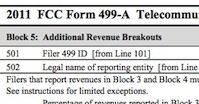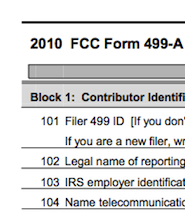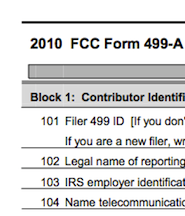 It’s a slow afternoon here, so I had a little time to consider one mind-numbing regulatory aspect of the growing number of group messaging and conferencing startups.
It’s a slow afternoon here, so I had a little time to consider one mind-numbing regulatory aspect of the growing number of group messaging and conferencing startups.
Eventually when these companies (Fast Society, Group.me, et. al) start charging for their services—most of them don’t now—my understanding is that they will be required to file an FCC Form 499.
Ok, so it was a very slow day.
Remember Form 499? That’s where providers of telecommunications for pay—and that includes call conferencing services—tell the FCC about their VoIP revenues apportioned to interstate connections.
And then our regulators calculate how much money is owed to the Universal Service Fund kitty.Continue reading



 I raise my cup of espresso to the FCC for starting the process to reform the Universal Service Fund with the ultimate goal of modernizing a rusting regulatory structure that is not up to task of universal broadband service.
I raise my cup of espresso to the FCC for starting the process to reform the Universal Service Fund with the ultimate goal of modernizing a rusting regulatory structure that is not up to task of universal broadband service.
 That’s not an Onion headline. But after perusing a few key sections of the officially released
That’s not an Onion headline. But after perusing a few key sections of the officially released